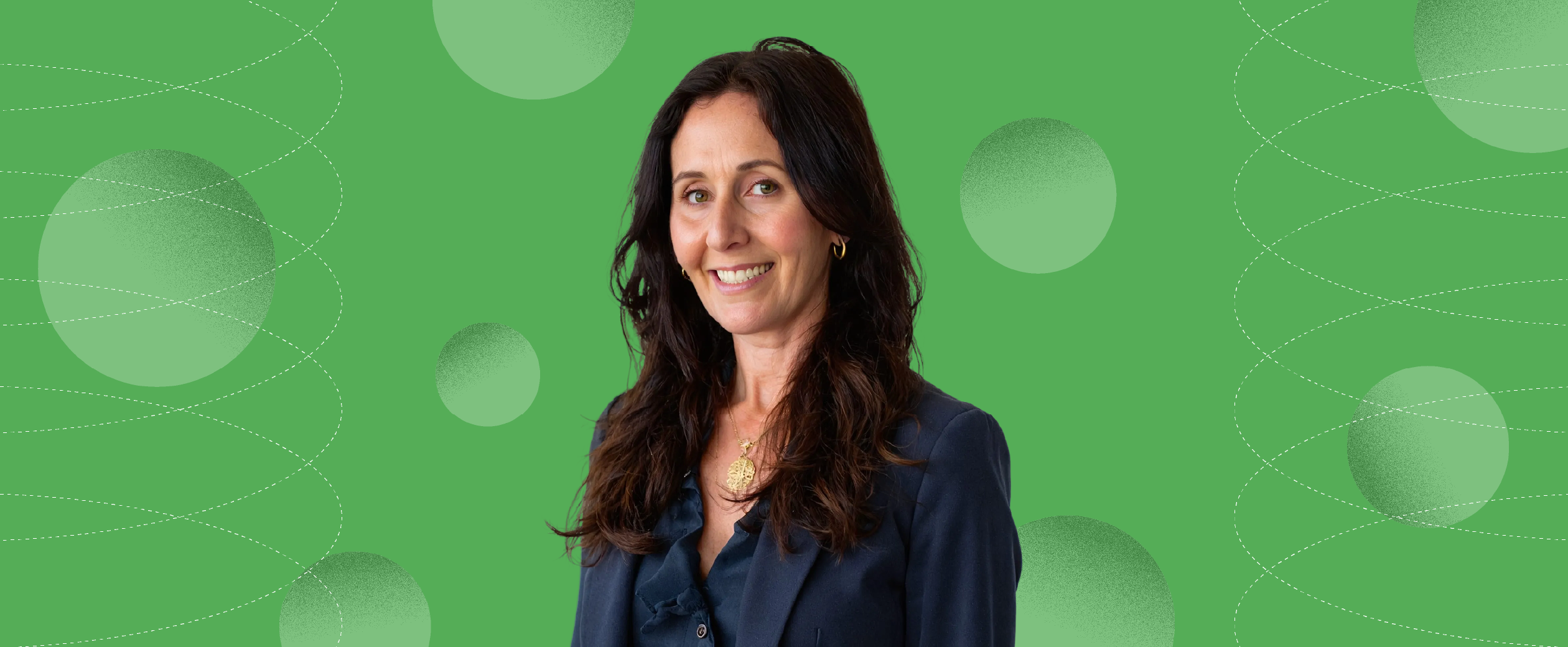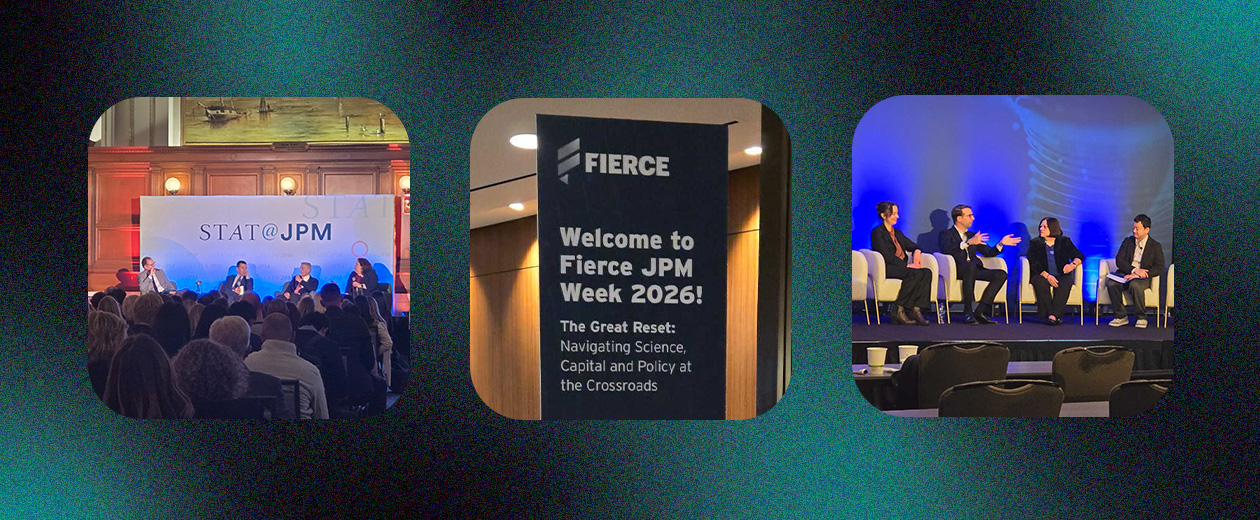
February 2, 2026
February 2, 2026

Reading time
July 10, 2024
December 15, 2023

Humans have been telling stories since the dawn of time, but not all stories find an audience, build a connection, and inspire action — only the best stories do.
So what separates good from great storytelling, especially when you’re communicating about complex scientific topics? We asked Rosalind Reid, the Executive Director of the Council for the Advancement of Science Writing (CASW) this and other questions. Before joining CASW, Rosalind was a print reporter in Maine and North Carolina, a research news editor at North Carolina State University, and an editor at American Scientist.
At Mission North we work with pioneers in the fields of biology, artificial intelligence, cybersecurity, and quantum computing to turn their research into stories for the public. There is an inherent tension in translating highly technical ideas into content for a mainstream audience. While our clients speak in degrees of accuracy and confidence, journalists work in the world of fact and fiction.
This makes science storytelling in the media a particular, but not insurmountable, challenge. Read on for Rosalind’s take on how to get it right and avoid common pitfalls.
I started out as a general assignment reporter but kept gravitating toward nerdy topics. I picked up quantitative skills in grad school, discovered science when I took a writing job at a university news bureau, got to dive deeper into science as a magazine editor, and finally immersed myself in science and computing with university work. I’d joined the CASW board along the way, and when the long-time executive director retired, I was there with the necessary experience and a desire to give back.
I’ve been incredibly lucky to have roles that gave me chances to learn and then share what I've learned with others. Science reporting and editing are great that way: Behind each sentence you write or edit is an exercise in realizing what you don’t know and doing the work to answer all the questions that pop up—basically uncovering knowledge by trying to tell good stories about it.
A great science story has a large accountability quotient. What do I mean by that? If a story is about discovery or findings, it above all must tell the audience HOW we know what we know. If it’s about some controversy or issue within science or involving science, it must hold science to account just as great journalism holds any powerful institution to account.
Great science stories don’t dumb things down. They help people understand the tentative and evolving nature of knowledge. Many of these things can be accomplished by spending time with the people doing the science and expressing what they are doing and thinking. Gushy “breakthrough” stories serve no one but speculative investors.
<split-lines>"Great science stories don’t dumb things down. They help people understand the tentative and evolving nature of knowledge."<split-lines>
Science journalists were ridiculously busy as the pandemic surged. Many had to suddenly pull away from their usual beats in physics, technology, environment or psychology to cover the Biggest Science Story Of The Century. They suddenly were mediators of a flood of preliminary and conflicting information in the space of immunology and epidemiology where very few had a solid background. Most science reporters in the past would not have covered medical results at the preprint stage, ahead of peer review.
But everyone, from parents to policymakers, was hungry for insight and guidance. And so everyone was writing about often questionable unreviewed results. In some cases, this was dangerous. It was also personally dangerous for many reporters, who for the first time were dealing with online abuse and even death threats as social trust was eroded.
Fast forward and preprints are here to stay, but there is much more caution being taken with them. There is a lot of conversation and training around mental health, dealing with online abuse, building trust with untrusting readers, and writing for polarized audiences.
Two mistakes dominate these days. The first is false balance. Whether the topic is tobacco or vaccines or climate, interest groups and industries exploit the tentative and evolving nature of knowledge by insisting that journalists present alternative viewpoints for “balance” on topics where all the solid science is pointing one way.
The second is the so-called deficit model of science communication, which is popular among scientists themselves. I used to believe that my job was to give people the science they need to make informed decisions and understand the natural world. This view assumes people have empty heads waiting to be filled with knowledge. They do not.
It is very hard for journalists to do the work of understanding their readers’ actual needs, and the important ways they filter news, rather than assuming they know what’s good for them, but it’s important work.
<split-lines>"This view assumes people have empty heads waiting to be filled with knowledge. They do not."<split-lines>
I’d encourage reporters to look beyond standard tropes like “hype vs. hope.” It’s very easy to say things like “AI has promise and risks.” Of course it does, but a statement like that does not give anyone insight on what AI is, or whether the risks come from the technology itself or from the risks arising from the things people will try to use it for. We need to open the black box and tell stories that help people understand what the things we collectively call “AI” are.
Something that’s peculiar about AI today is that computer scientists themselves don’t know how and why some AI systems are unreasonably effective at certain tasks. They don’t know what is actually going on in deep learning.
Scientists in fields like astronomy and neuroscience that are using deep-learning methods are getting amazing-looking results without good ways to test that they are really valid. Journalists need to learn this stuff well enough to do the accountability stories I mention above and drill down for answers to people’s worries and questions.
<split-lines>"We need to open the black box and tell stories that help people understand what the things we collectively call 'AI' are."<split-lines>
They can be generous with their time and respectful of the many constraints under which journalists operate today. I encourage media training for any scientist uncomfortable working with the media, unfamiliar with the rules of the game, or unable to explain science at a non-expert level. They should be willing to take the time to do a little teaching and encourage dumb questions, and they should not assume that finding a good story is only the journalist’s job.
Our current work is primarily focused on the training needs of early-career science journalists. We also work with scientists-in-training to give them important hands-on experience learning about science journalism by doing it. So first I’d encourage scientists to send their communication-savvy grad students and postdocs to a ComSciCon-SciWri workshop.
After that, we are eager to have contributions to CASW Connector, our new resource hub for science communication and science journalism, and we always welcome suggestions of topics and speakers for our New Horizons in Science briefings. As for reporters who might be interested in fellowships and awards: Just apply!

January 28, 2026
January 28, 2026

January 8, 2026
January 8, 2026